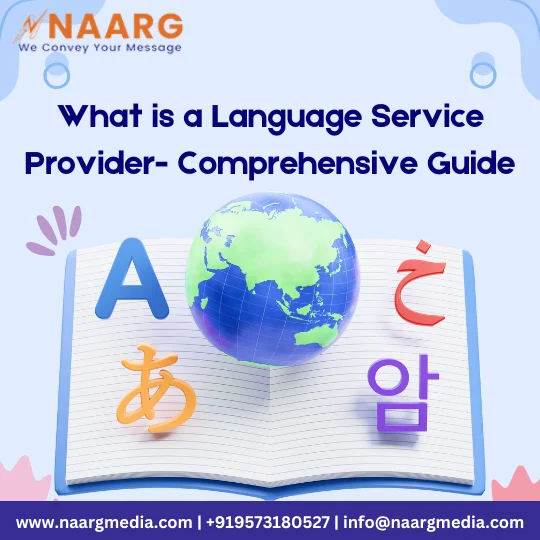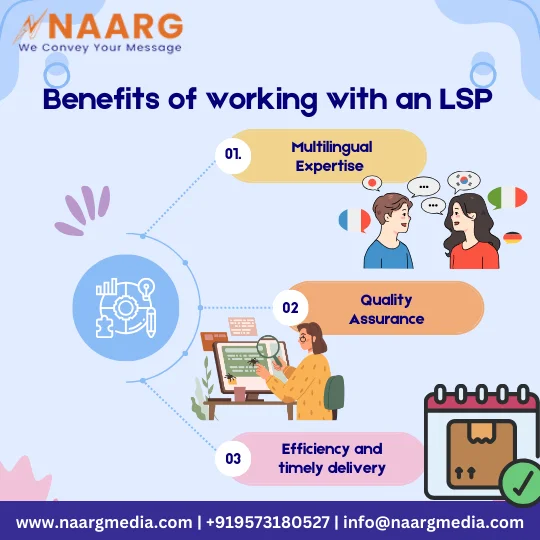The year 2020 led to an incredible transformation in how we see the digital world which includes increased consumer demands for online purchasing. So, naturally, more and more companies started expanding their businesses into international markets. When you plan to enter international markets, it is essential to choose the right language service provider to partner with to translate your business content from the source language to the target language.
It might be hard for you to believe, but English accounts for only 25% of the share of the languages used on the web. Surprised? Don’t be! Because that’s where language service providers come into the picture. These language service providers, commonly known as translation agencies, help your business enter the international market. And how do they do that? Well! Let’s find out together.
Want to know how language service providers help your business with its global expansion strategy? Then, read this blog further. This comprehensive guide will help clear your doubts and help you choose the right language service provider.

What is a Language Service Provider?
A language service provider, or translation service provider, is an entity that offers you services related to languages. An LSP can be a company, an agency, or even an individual that has one or a variety of languages to offer. The services offered by these service providers encompass translation, interpretation, localization, and other linguistic solutions to facilitate effective communication across different languages and cultures.
They employ skilled linguists, freelance translators, and interpreters who possess expertise in various industries and languages and have years of experience. LSPs often utilize advanced tools and technologies to streamline language-related processes, offering comprehensive solutions to meet the diverse needs of their clients.
Key Functions of Language Service Providers
Normally, an LSP offers a wide range of language-related services to help you and your business communicate effectively across linguistic barriers. The major key function of LSPs is translation, where they convert written content from one language to another with the utmost precision and cultural sensitivity. Another critical role for LSPs is interpretation, involving real-time language mediation and spoken communication.
One of the most vital functions of LSPs is localization, where they adapt content to suit specific cultural nuances, ensuring it resonates appropriately with the target audience. LSPs may also offer linguistic consulting services and quality assurance services tailored to your unique needs.
Moreover, LSPs often employ tools and technologies in their services, like translation management systems and computer-assisted translation (CAT) tools, just to enhance translators’ work and maintain consistency in language-related tasks. All these key functions provided by LSPs contribute to breaking down language barriers and fostering effective communication.
Types of Language Service Providers
LSPs encompass a diverse range of entities, and there are several types of LSPs based on the different structures and services offered. Here we have listed some types of LSPs.
1. Multiple language service providers
Multiple language service providers are those that can handle and execute projects in a variety of languages. These types of LSPs hire experts with expertise in a variety of languages. For a business that is trying to expand into several foreign markets, these types of LSPs are often the best choice.
2. Single-language service providers
They specialize in offering services related to a specific language or a limited set of languages. Unlike the multiple language service providers that handle a wide variety of languages, these LSPs focus on a niche or specific linguistic market. They generally cater to the unique linguistic and cultural needs associated with a particular language.
3. Freelance service providers
Freelance language service providers are those who are freelance translators, interpreters, and language consultants who offer their services on a freelance basis. By either working directly with clients or through online platforms.

What are the benefits of working with an LSP?
If you want to expand your business in the international market, then you need to understand that language plays a crucial role in this global expansion. For this, you need to work with an LSP. So, here are some benefits of working with an LSP:
1. Multilingual Expertise
When you work with LSP, you will have multilingual expertise. LSP brings a team of skilled linguists, translators, and interpreters who have expertise in multiple languages and diverse cultural contexts.
2. Quality Assurance
One of the most important benefits of working with LSP is quality assurance. Working with an LSP ensures a high standard of quality and accuracy in language services. This is because they employ rigorous quality control processes and adhere to industry standards.
3. Efficiency and timely delivery
LSPs often streamline language-related processes, utilizing advanced tools and technologies. With the help of these tools, experienced professionals deliver the project on time, hence meeting tight deadlines and project timelines.
Once you partner with an LSP, they provide your business with the necessary support to thrive in an international marketplace.
List of factors to consider while choosing an LSP
Choosing an LSP for your translation project is a crucial decision for your business. Here are a few factors to consider while choosing an LSP.
- Is the LSP experienced in that specific industry or niche? Because the right LSP should have expertise in your specific industry, and the translators should have a good grasp of the specific industry terminology.
- Does the LSP leverage advanced technology tools like translation management systems and CAT tools? And how do they integrate these technologies into language services?
- Can the LSP meet your project deadlines? And do they offer expedited services if needed? This should be thoroughly discussed while choosing an LSP.
- The most essential factor to consider when choosing an LSP is how they ensure the accuracy and consistency of their language services. And what are the quality control measures they undertake for any translation project?
Considering these factors will help you make an informed decision when choosing an LSP that aligns with your business goals.
We are Naarg, a global language services provider, supporting various businesses in reaching a global audience in any language. Contact us today to learn more about our services.

